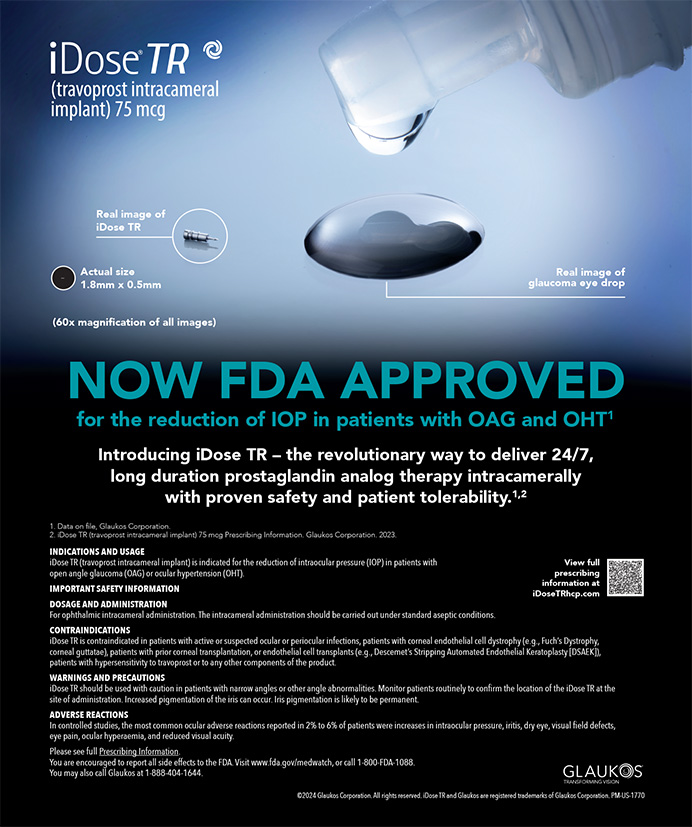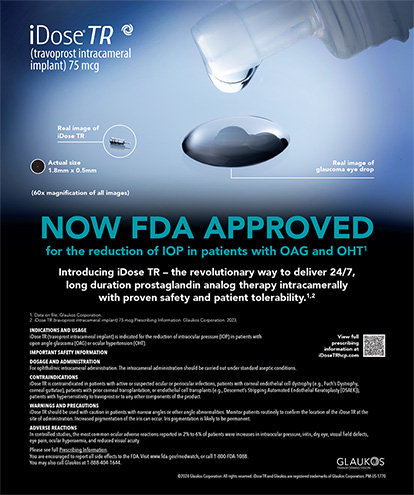Health care rightfully remains a top priority for the current administration. It is quite simply one of the most aggressive, important, and optimistic social initiatives of our generation. How can anyone argue that we do not need to provide quality care to those in need? At the same time, how does a nation with limited resources pay for the health care costs of an aging population? Technological advances, improved pharmaceuticals, and the high expectations of the US population lead to and demand better medical outcomes but often at higher costs. From my perspective as an ophthalmologist, the only apparent action being taken to contain costs is the lowering of Medicare cataract reimbursement fees, while the cost of technology continues to climb.
The Centers for Medicare & Medicaid Services (CMS) are now considering a new measure (No. 10027) designed to evaluate the percentage of cataract surgeries that have a predicted probability of producing at least a 20% improvement in vision. The CMS clearly state, "Cataracts … are treated with surgical intervention at a cost of nearly 7 billion dollars annually. … Identifying patients with a lower probability for functional improvement following cataract surgery may lead to fewer procedures and ultimately save money for Medicare."1 Cataract surgery, by all estimates, is one of the most successful procedures performed today, with patients experiencing an improvement in visual function and their quality of life. The CMS' statements suggest that inappropriate surgery is now being performed. A joint response from the AAO and ASCRS effectively outlined the flaws in the CMS' measure such as
- the absence of an ophthalmologist on the panel that wrote it
- the inability to measure visual outcomes, especially in patients with comorbidities such as age-related macular degeneration, diabetes, and epiretinal membranes
- unsubstantiated claims made by the CMS
Medicare previously abandoned an expensive initiative that required a second opinion for patients seeking cataract surgery, because the agency found that recommended cataract surgery was overwhelmingly justified. In my experience, it is extraordinarily rare for patients to say they wish they had not undergone the procedure. Imposing arbitrary, unsubstantiated guidelines on ophthalmologists and their patients under the premise of improving outcomes is simply a way to restrict Medicare patients' access to a life-changing procedure.
I have no simple answers to the health care dilemma. As a start, however, I would seek to reduce health care costs in areas that do not provide a service to the vast majority of patients—notably the insurance and legal fields. For example, PriceWaterhouseCoopers' Health Research Institute recently analyzed the cost of defensive medicine. The company found that $210 billion are wasted annually by the practice of defensive medicine.2 In a recent address to Congress, President Obama stated that medical liability reform is needed to reduce health care costs: "I've talked to enough doctors to know that defensive medicine may be contributing to unnecessary costs. So I'm proposing that we move forward on a range of ideas about how to put patient safety first and let doctors focus on practicing medicine."3 It is my hope, although not my expectation, that this initiative moves to the front of the agenda and that Congress responds to the challenge.


